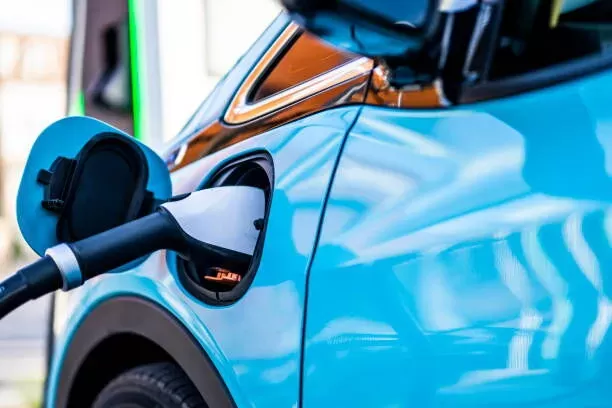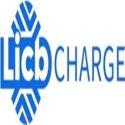Notifications

9 minutes, 43 seconds
-161 Views 0 Comments 0 Likes 0 Reviews

Introduction
As electric vehicles (EVs) become more widespread, the demand for accessible and reliable EV charging solutions is rapidly increasing. For businesses eager to tap into this growing market, one solution gaining traction is white-label EV charging. This China EV Charger model allows companies to offer a branded EV charging experience without the need to develop the infrastructure and technology themselves. In this article, we’ll dive into what white-label EV charging is, its benefits, how it works, and how businesses can utilize it to boost their brand and offer exceptional services to their customers.
What is White-Label EV Charging?
White-label EV charging involves using an existing EV charging infrastructure and rebranding it to fit your company’s identity. Similar to private labeling in retail, where products are made by one manufacturer but sold under another brand’s name, white-label EV charging allows businesses to offer EV charging solutions without having to build or maintain the technology themselves.
Typically, a white-label EV charging solution includes pre-built hardware, software, and network management systems that can be customized with your brand’s logos, colors, and specific features. This approach enables businesses—whether in retail, hospitality, or energy—to quickly launch their own branded EV charging network, saving both time and money while capitalizing on the growing need for EV infrastructure.
Benefits of White-Label EV Charging
Quick Network Launch
One of the key advantages of white-label EV charging is the rapid deployment. Instead of spending months or even years designing and building the infrastructure, businesses can leverage an already-established platform and have their network up and running in a matter of weeks or months. This enables companies to act quickly on market opportunities without unnecessary delays.
Cost Savings on Personnel
Developing an EV charging infrastructure in-house would require significant investment in personnel, including engineers, technicians, and software developers. By opting for a white-label solution, businesses can avoid these costs, as the infrastructure and software are already developed and ready to implement. Maintenance, upgrades, and network monitoring are usually managed by the provider, reducing the need for dedicated in-house staff.
Build Brand Identity with a Branded Network
A white-label EV charging solution gives businesses the opportunity to fully brand their charging stations, creating a unique identity that customers will instantly recognize. Whether it’s a retail chain, a hotel, or a utility company, offering a branded charging network can create a stronger emotional connection with customers and foster brand loyalty. As more people drive electric vehicles, a branded network can become an integral part of a business’s overall service offering.
Promote Brand Values and Enhance Customer Loyalty
White-label EV charging offers businesses the chance to enhance customer engagement and loyalty. By offering a service like EV charging, businesses create a positive customer experience that goes beyond traditional product offerings. For example, a hotel that provides branded EV chargers not only serves its guests' needs but also reinforces its commitment to sustainability and customer satisfaction. Over time, this service can encourage repeat business and strengthen the brand’s reputation.
Lower Risk for Businesses
Outsourcing the development and management of EV charging infrastructure allows businesses to reduce the risks associated with technology failures, regulatory challenges, and ongoing maintenance. White-label providers are typically experts in managing charging networks and staying compliant with evolving laws and regulations. This allows businesses to focus on their core operations while leaving the technical aspects of network management to the specialists.
How White-Label EV Charging Works
White-label EV charging works by partnering with a third-party provider that has already developed the hardware and software needed for EV charging stations. These providers offer customizable platforms that businesses can brand as their own. Here’s a typical workflow:
Partnering with a Provider: A business collaborates with a white-label EV charging provider that offers the necessary hardware, software, and network management tools. The provider takes care of the technical side, including installation, network maintenance, and software updates.
Customization: The business customizes the charging stations to reflect its branding, including logos, colors, and other visual elements. This ensures that the charging stations align with the company’s overall identity and customer experience.
Deployment: After customization, the provider handles the installation of the charging stations at various locations. The stations are integrated into the provider’s network, ensuring smooth operation and real-time monitoring.
Customer Interaction: Customers interact with the charging stations through mobile apps or on-site interfaces, where they can locate chargers, check availability, and make payments—all under the business’s brand. The provider manages the backend operations such as billing and troubleshooting.
Ongoing Management: The provider continues to oversee the network, handling everything from regular maintenance to software updates, while ensuring that the charging stations remain compliant with relevant laws and standards.
How Businesses Can Leverage White-Label EV Charging
Businesses can take advantage of white-label EV charging not only to improve customer satisfaction but also to set themselves apart from competitors. Here’s how:
Boost Sustainability Initiatives: Offering EV charging stations supports a company’s sustainability efforts and positions it as a leader in eco-friendly practices. By providing a practical solution for EV owners, businesses can attract environmentally-conscious consumers and enhance their green credentials.
Increase Foot Traffic: Retailers, hotels, and other businesses can use EV charging stations to drive foot traffic. EV owners are more likely to visit businesses with charging stations, increasing the time they spend at the establishment and potentially boosting sales.
Create New Revenue Streams: White-label EV charging stations can be monetized in multiple ways. Businesses can charge users for the energy they consume, offer subscription plans for regular customers, or even feature advertisements on charging stations or apps. Some businesses may also be eligible for incentives or rebates from local governments or utility companies for installing EV infrastructure.
Attract New Customers: As more consumers adopt electric vehicles, businesses that offer white-label EV charging stations will naturally appeal to a new market segment. By providing EV charging solutions, companies can attract eco-conscious customers and differentiate themselves in a competitive marketplace.
Enhance Customer Experience: Offering EV charging options improves convenience for customers, making their visit more enjoyable. For example, a hotel with EV charging stations can attract travelers with electric cars who need a place to recharge. This service can help build customer loyalty and increase repeat visits.
Conclusion
White-label EV charging offers businesses an excellent opportunity to meet the growing demand for electric vehicle infrastructure without the need to develop the technology in-house. By branding EV charging stations, companies can enhance brand equity, attract and retain customers, and align themselves with sustainability efforts. Additionally, the flexibility and ease of scalability provided by white-label solutions make this a strategic long-term investment for businesses looking to stay ahead in an evolving market. With the continued growth of electric vehicles, investing in white-label EV charging is an effective way to capitalize on this trend and offer a valuable service to customers.Know more about Google SEO Directory
China EV Chargers EV Charger Manufacturer Smart EV Chargers Electric Car Chargers Electric Vehicle Chargers Electric Car Charging Stations

